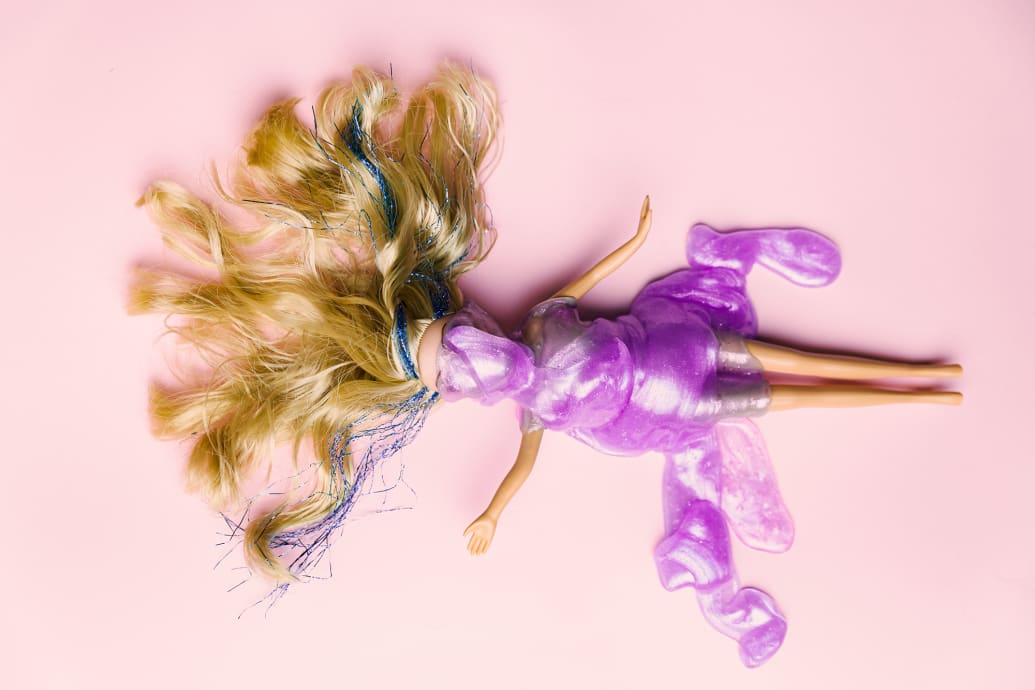It’s Barbie Week at The Daily Beast’s Obsessed, celebrating the doll’s pop-culture history, our favorite Barbie memories, and a certain major movie. Read all of our coverage [the iconic American Girl-brand puberty “handbook],” Natalie continues, when asked to consider why she put her Barbies through the sexual wringer. “And the fact that I watched a ton of raunchy movies at a very young age. I was also obsessed with body parts in general around the time this was happening, and with being a 19-year-old. I simply thought that hanging at the mall and then having lots of sex was how 19 year olds had fun. I wasn’t wrong!”
“Making your Barbies scissor each other was a natural impulse.”
That Natalie, my childhood friends, and I played with Barbies this way is nothing to be ashamed of, even if it’s easy to feel sheepish about admitting it.
“This is one of the rarely acknowledged benefits of a doll mostly singled out for her downsides,” wrote Ann Friedman, in an excellent 2014 essay for The Cut (entitled, perfectly, “My Barbies Had So Much Sex. It Was Great”). “Barbie is a safe way for girls to explore dangerously adult concepts like sexuality.” Friedman goes on to cite stories from both her childhood and that of her friends about their dolls’ “active sex life”—something she notes was solely the product of young curiosity, not real sexual intent.
Making your Barbies scissor each other—a very real thing that Natalie did not invent—was a natural impulse, as my former colleague Constance Grady writes in a recent Vox story, “You rip her apart; you make her have sex; what else can you do with her? What else can you do with the problem of what you’re going to grow up to face?”
As grown ups, we can look back at how we turned our elegant Barbies into debauched, disturbed Weird Barbies and laugh. “I can’t help but chuckle thinking about my behavior now, as it’s clear how misplaced my anger was,” says Alyse. “My poor Barbie dolls didn’t do anything to deserve that.”
Despite rejecting Barbie’s femininity and abusing her for it as a kid, Alyse says she’s since done “a 180 started embracing the feminine-coded things I’d pushed away as a kid. My home office is decked out in pink, my Nintendo Switch has an obnoxiously pink case complete with pink cat-paw thumb grips, and I already have my tickets to see the Barbie movie on opening night.”
Michelle also has no regrets about turning her Barbie into a wacky frisbee, saying that “her melted form had the kind of beautiful grotesqueness you sometimes see in modern-art exhibits.”
But for some, the preponderance of Weird Barbies in their collections remains a frustrating memory from growing up as an out-of-the-box little girl.
“I think the main feeling I’ve got is some frustration with how limiting kids’ toys’ gender focus felt,” says Paige. “I’m a cis, straight woman, but even if I couldn’t verbalize it then, I still couldn’t identify with and wasn’t interested in the picture of womanhood she seemed to represent.
“Maybe if I didn’t feel so trapped by the expectation that I’d love Barbies because I was a girl, I wouldn’t have felt so resentful of her and skeptical of her jobs,” she says. “Maybe I would have even liked her.”
Read more of our Barbie coverage HERE.
“Making your Barbies scissor each other was a natural impulse.”










